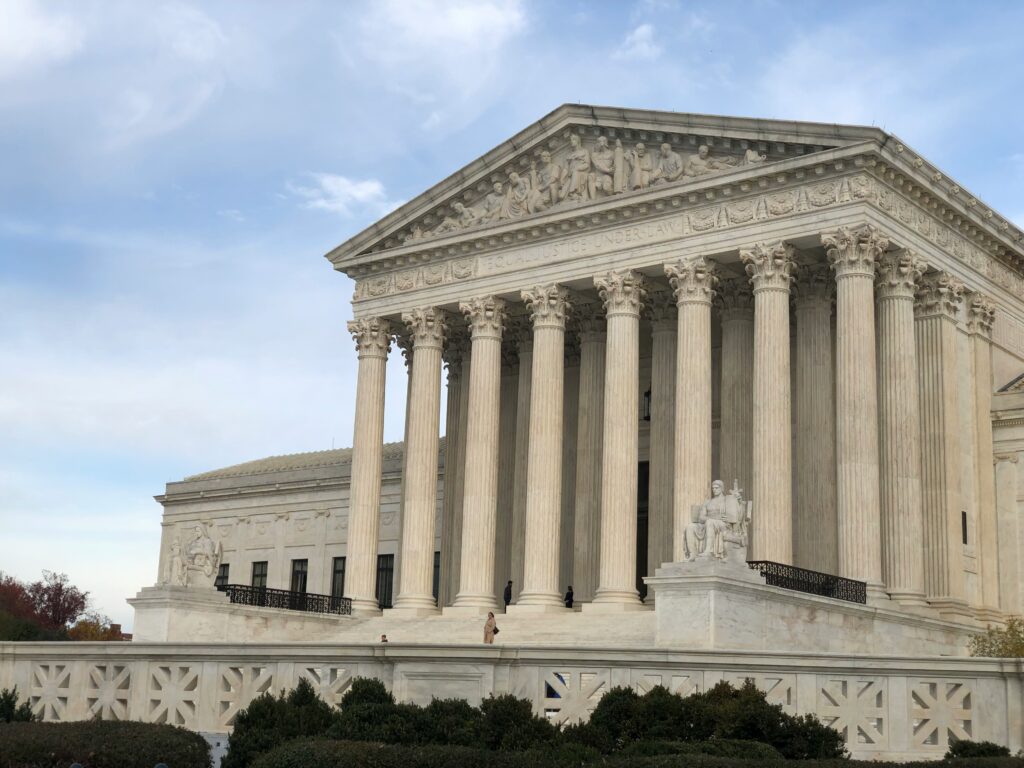Buying a franchise can be a great path to owning your own business. This article addresses key steps: understanding the franchise model, evaluating financial commitments, and navigating legal requirements. Discover whether franchising is the right choice for your entrepreneurial journey. And if you decide to pursue a franchise, engage an experienced business attorney like the team at Davis Business Law to help.
Key Takeaways
- Franchising offers a balanced model of independence and support, allowing franchisees to benefit from established brand recognition and operational guidance.
- Understanding the financial commitments, including initial investment costs and ongoing fees, is critical for determining the feasibility and profitability of a franchise ownership.
- Careful due diligence, including a thorough review of the Franchise Disclosure Document (FDD) and seeking legal guidance, is essential for making informed decisions and protecting one’s investment in a franchise.
Understanding the Franchise Business Model

Photo by Asael Peña on Unsplash
Franchising is a structured business relationship where a franchisor grants a franchisee the right to operate a business using its brand and business model in exchange for a fee. This arrangement allows franchisees to benefit from the franchisor’s established brand recognition, which can drive customer loyalty and increase sales. For many small business owners, this represents a significant advantage over starting an independent business from scratch.
One of the key benefits of the franchise system is the comprehensive support provided by the franchisor. This includes marketing and operational strategies designed to help franchisees succeed. New franchisees receive training and ongoing support from the outset to effectively manage their franchise location. This support structure minimizes the risks typically associated with starting a new business venture, making franchising an attractive option for potential franchisees.
However, franchise ownership also comes with specific responsibilities. Franchisees are required to pay various franchise fees, including an initial franchise fee and ongoing royalties. They must also adhere to the franchisor’s standards and guidelines to maintain consistency and quality across all franchise locations. This structured approach helps maintain the integrity of the franchisor’s established brand and ensures a uniform customer experience across all franchise operations.
In essence, the franchise business model offers a balance of independence and support. While franchise owners enjoy the autonomy of running their own business, they also benefit from the franchisor’s proven business model and brand recognition. This combination of structured support and entrepreneurial freedom makes franchising a compelling option for many small business owners and small business owner looking to embark on a new business venture.
Financial Considerations When Buying a Franchise

Photo by Alexander Grey on Unsplash
When considering the purchase of a franchise, it’s essential to understand the financial commitments involved. The financial aspects encompass initial investment costs, ongoing fees, and various financing options. These factors play a crucial role in determining the feasibility and profitability of your franchise venture.
To begin with, evaluating personal finances and risk tolerance is vital for prospective franchisees. Understanding your financial health and how much capital you can invest without jeopardizing your financial stability will help you determine if franchise ownership is a suitable path for you. Additionally, reviewing the franchisor’s financial statements is imperative to assess their financial health and any associated risks.
It’s also important to consider that beyond the costs listed in the FDD, there may be additional expenses such as accounting and legal fees. These hidden costs can add up, so it’s crucial to factor them into your financial planning.
Thoroughly understanding the financial landscape of franchise ownership allows you to make informed decisions and set realistic expectations for your business venture.
Initial Investment Costs/Initial Franchise Fee
The initial investment costs for franchises can vary significantly, ranging from a few thousand dollars to several million, depending on the franchise model. These costs typically include the initial franchise fee, equipment, inventory, and setup expenses, highlighting the need for careful financial planning.
In addition to the initial fee, franchisees must also consider other upfront expenses such as rent, building and equipping the outlet, operating licenses, insurance, and grand opening fees. These costs can quickly add up, making it essential to understand the full scope of the initial investment. Knowing how much capital is required upfront will help you assess whether you have the necessary resources to launch and sustain your franchise.
Common initial costs for buying a franchise include the initial franchise fee and an operating reserve. This operating reserve is crucial as it provides a financial cushion during the early stages of the business when revenue generation may be slow. Understanding and planning for these initial investment costs helps set a solid foundation for your franchise’s financial health and long-term success.
Ongoing Fees and Royalties
Ongoing fees are a critical aspect of owning a franchise that can significantly impact profitability. Franchisees are typically required to pay ongoing royalties, which are calculated as a percentage of their gross sales. These continuing royalty payments are based on a percentage of weekly or monthly gross income, and even in times of financial loss, franchisees are still obligated to pay these fees.
In addition to royalty fees, franchisees may also be required to contribute to national advertising funds. These advertising fees help attract new franchise owners and maintain brand visibility. By contributing to these national advertising efforts, franchisees benefit from broader marketing campaigns that enhance brand recognition and drive customer traffic to their franchise locations.
Understanding these ongoing costs and their impact on your franchise’s profitability is essential. Factoring in these expenses when evaluating franchise opportunities allows for more informed financial decisions and ensures the long-term viability of your franchised business.
Legal Aspects of Franchise Ownership

Photo by Joshua Woods on Unsplash
Understanding the legal aspects of franchise ownership is crucial for protecting your investment and ensuring long-term success. The FDD is a key legal document that provides vital information about the franchise offering. It includes details about the franchisor’s background, financial health, and legal obligations, helping prospective franchisees make informed decisions.
Potential franchisees must be aware of hidden fees, restrictive clauses, and overly optimistic financial projections within the FDD. Consulting a lawyer is essential when buying a franchise to fully understand your obligations under the franchise agreement. Legal assistance can help you navigate the complexities of franchise law and avoid potential pitfalls that could jeopardize your investment.
Thoroughly reviewing the FDD and seeking legal guidance ensures you are fully informed about the franchise opportunity and your rights and obligations as a franchisee. This due diligence is critical for protecting your interests and laying the groundwork for a successful franchise operation.
Reviewing the Franchise Disclosure Document (FDD)
The FDD is an essential tool for evaluating franchise opportunities. It provides detailed insights into the franchisor’s background, financials, and legal obligations.
The FDD contains 23 items, including information on:
- The franchisor
- Management team
- Litigation involvement
- Fees
- Current and former franchisees
Prospective franchisees should carefully review the FDD and engage legal guidance to understand their rights and obligations within the franchise agreement. This comprehensive review helps identify any red flags or potential risks associated with the franchise opportunity. Additionally, franchisors are required to provide the FDD to potential franchisees at least 14 days prior to any payment or contract signing, allowing ample time for thorough evaluation.
Meticulously reviewing the FDD and seeking legal counsel helps you make well-informed decisions and avoid entering into unfavorable agreements. This step is crucial for safeguarding your investment and ensuring a successful franchise venture.
Negotiating the Franchise Agreement
Negotiating the franchise agreement is a critical step in the franchise buying process. While franchise agreements are negotiable, it’s important to approach negotiations with caution. Core items that can be negotiated include initial fees, royalties, and contributions to a brand development fund.
Potential franchisees should exercise caution when negotiating core items to avoid undue risks in the agreement. And some franchisors will not negotiate, making it “take-it-or-leave-it.” It is advisable to have a lawyer review the franchise agreement to understand your rights and obligations fully. Transparent communication with the franchisor is essential for resolving conflicts and ensuring compliance with obligations.
Understanding the legal implications of a franchise agreement is crucial for preventing termination and ensuring long-term success. Negotiating terms wisely and seeking legal assistance helps secure a favorable agreement that aligns with your business goals.
Due Diligence: Research Before You Buy
Evaluating different franchise opportunities and conducting thorough due diligence is essential before committing to a franchise. This process involves researching all aspects of the franchise opportunity to uncover any red flags or potential risks. Engaging in independent research helps validate the franchisor’s claims and ensures accountability.
One effective way to gather valuable insights is by engaging with current and former franchisees. Their experiences can provide a realistic perspective on the franchisor’s support, operational challenges, and overall satisfaction. Thorough research, including a franchise business review, is critical before signing a franchise agreement to mitigate risks associated with long-term commitments.
Conducting comprehensive due diligence helps you make informed decisions and choose a franchise that aligns with your goals and expectations. This step is crucial for laying a strong foundation for your franchise’s success.
Tips for Running a Successful Franchise

Photo by Annie Spratt on Unsplash
Running a successful franchise requires adherence to several key practices. Consistent branding and adherence to established standards are essential for maintaining the integrity of the franchisor’s established brand. Effective franchise management relies on constant adaptation and strategic planning for growth.
Franchisees also contribute a portion of their sales. This goes towards national, regional, or local advertising funds. These contributions help maintain brand visibility and attract new customers, enhancing the franchise’s overall success.
Following these essential tips helps franchise owners ensure smooth operations and achieve long-term success.
Effective Communication
Effective communication is crucial for the success of any franchise. Open channels of communication foster trust and transparency within the franchise, facilitating better coordination with staff and the franchisor. Clear communication fosters collaboration and helps address challenges promptly.
Prioritizing effective communication helps franchise owners create a positive working environment and align everyone with the franchise’s goals. This approach is essential for maintaining operational efficiency and achieving business success.
Customer Service Excellence
Customer satisfaction and excellent service are vital for a franchise’s success. Franchises should actively seek customer feedback to improve services and satisfaction. Personalized service can significantly enhance customer loyalty, leading to repeat business and positive word-of-mouth.
Prioritizing customer service excellence helps franchise owners build strong relationships with customers and create a loyal customer base. This focus on customer satisfaction is a key driver of long-term success.
Monitoring Financial Performance
Regular assessments of financial performance are vital for maintaining the franchise’s success. Implementing regular financial reviews can help identify trends and address financial issues promptly. Financial statements need to be reviewed regularly. Additionally, key performance indicators (KPIs) should also be monitored to assess financial performance.
Closely monitoring financial performance enables franchise owners to make informed decisions and take corrective actions when necessary. This proactive approach is essential for ensuring the financial health and sustainability of the franchise.
Is Buying a Franchise Right for You?

Photo by Jens Lelie on Unsplash
Buying a franchise can be a lucrative and rewarding venture, but it’s not without its challenges. The benefits of franchising include leveraging a proven business model, gaining access to established brand recognition, and receiving comprehensive support from the franchisor. These advantages can significantly lower the risks associated with starting a new business from scratch, providing a strong foundation for success.
However, potential franchisees must also consider the downsides. Financial commitments such as the initial franchise fee, ongoing royalties, and other operational costs can be substantial. Additionally, the operational guidelines and restrictions set by the franchisor can limit your flexibility and autonomy as a business owner. For some, these constraints might outweigh the benefits of buying a franchise.
Before committing to buy, it’s essential to assess your financial health and available capital. Ensure you have enough resources to cover the initial investment and sustain the business during its early stages. Evaluating capital needed for the first six months, including marketing expenses, is crucial for potential franchisees. This thorough assessment will help you understand if you are financially prepared for the commitments ahead.
Ultimately, deciding whether to buy a franchise requires careful consideration of the pros and cons. Weighing these factors and conducting thorough research helps determine if buying a franchise aligns with your goals and expectations. Remember, while franchising offers many opportunities, it doesn’t guarantee success; your dedication and hard work will play a significant role in your entrepreneurial journey.
Summary
In summary, buying a franchise involves a multifaceted decision-making process that requires careful consideration of financial, legal, and operational aspects. Understanding the franchise business model and the support provided by franchisors can help you navigate the complexities of buying a franchise. Thoroughly reviewing the Franchise Disclosure Document (FDD) and consulting with a franchise attorney are critical steps in safeguarding your investment.
Financial planning is paramount, encompassing initial investment costs, ongoing fees, and potential hidden expenses. By conducting due diligence and engaging with current and former franchisees, you can gain valuable insights and mitigate risks associated with long-term commitments. Effective communication, customer service excellence, and regular financial performance monitoring are essential practices for running a successful franchise.
Ultimately, deciding if buying a franchise is right for you involves evaluating your financial health, risk tolerance, and alignment with the franchisor’s expectations. By carefully weighing the benefits and drawbacks, you can make an informed decision that sets the stage for entrepreneurial success. Remember, the journey of buying a franchise is as much about your dedication and hard work as it is about leveraging an established brand and proven business model.
Frequently Asked Questions
Is buying a franchise a good idea?
Buying a franchise is a prudent decision as it offers a shorter path to profitability, backed by an established customer base and trained staff. Thorough research is essential to ensure a sound investment.
Why is due diligence important in the franchise buying process?
Due diligence is essential in the franchise buying process as it allows prospective franchisees to thoroughly research and analyze the opportunity, uncovering any potential risks or red flags. This careful assessment ensures informed decision-making and protects the buyer’s investment.
How many sections does the FDD contain?
The FDD contains 23 sections, referred to as “Items.”
Are franchise agreements negotiable?
Franchise agreements are often negotiable. It is advisable to retain a business attorney and discuss terms with the franchisor to reach a mutually beneficial arrangement.

